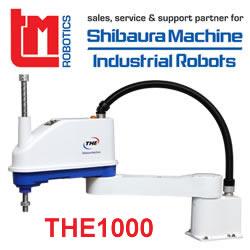Distinguished Robotics & Automation Expert Joins ROBO Global® Board
Ken Goldberg, Ph.D., brings over 30 years of experience and unmatched thought leadership
DALLAS--(BUSINESS WIRE)--ROBO Global, creator of the first benchmark index to track the global robotics, automation and artificial intelligence market, continues to hand-pick world-renowned robotics and automations experts for its team. Famed researcher and robotics pioneer Ken Goldberg, Ph.D., the William S. Floyd Distinguished Chair of Engineering at UC Berkeley, is the most recent addition to the Strategic Advisory Board.
"His insight and expertise is sought after all over the world. Were honored to have him on our team helping ROBO bring innovative solutions to investors in the US, Europe and Asia. "
Tweet this
Goldberg is the fifth Ph.D. to join the Board. In his new role, he will use his 30-plus years of experience to advise the team on the expansive opportunities posed by the robotics, automation and artificial intelligence (RAAI) market.
In addition to being a professor and the Department Chair of Industrial Engineering and Operations Research at the University of California (UC), Berkeley, Goldberg is also Director of the CITRIS "People and Robots" Initiative and the UC Berkeley AUTOLAB. In that capacity, he leads research in geometric algorithms and machine learning for robotics and in applications from surgery to manufacturing.
"Ken is truly one of the brightest minds in robotics and automation," said Travis Briggs, CEO of ROBO Global. "His insight and expertise is sought after all over the world. Were honored to have him on our team helping ROBO bring innovative solutions to investors in the US, Europe and Asia. "
Goldberg has over 250 peer-reviewed publications and eight U.S. Patents. He co-founded and served as Editor-in-Chief of the IEEE Transactions on Automation Science and Engineering. Goldberg was granted the NSF PECASE (Presidential Faculty Fellowship) award from President Bill Clinton, one of the highest honors given by the U.S. government for scientists and engineers, was elected IEEE Fellow, and selected by the IEEE Robotics and Automation Society for the George Saridis Leadership Award. Goldberg holds dual Bachelor of Science degrees from the University of Pennsylvania in Electrical Engineering and Economics and a Ph.D. degree in Computer Science from Carnegie Mellon University.
For more information visit: www.roboglobal.com
About ROBO Global
ROBO Global is the creator of the first benchmark index to track the global robotics and automation industry. By offering access to the entire value chain of robotics, automation and artificial intelligence, The ROBO Global Robotics and Automation Index captures the growth potential of the global robotics revolution and brings these solutions to investors.
The index is comprised of more than 80 rapidly developing companies spanning more than 14 countries that are categorized into 12 subsectors. With the expertise of ROBO Global's leadership team and strategic advisors, which includes five Ph.Ds., ROBO Global searches worldwide to find cutting-edge companies across a multitude of industries from healthcare to industrials to consumer products.
ROBO Global has offices in Dallas and London, and indices listed on multiple exchanges. For more information, please visit www.roboglobal.com.
Featured Product

TM Robotics - Shibaura Machine THE SCARA range
The THE range from Shibaura Machine is an extensive line up of SCARA robots. Available in four arm lengths THE400 (400mm), THE600 (600mm) and the most recent THE800 (800mm) and THE1000 (1000mm), this range is suitable for assembly, handling, inspection and pick and place processes in varied industrial applications. The THE1000 boasts a 20kg payload capacity and an impressive 0.44 second cycle time, providing high speeds for processes with large components. In fact, the range has been recognised for as the price-to-performance leader compared to other SCARA models in its price range due to its impressive speed versus payload capacity.
